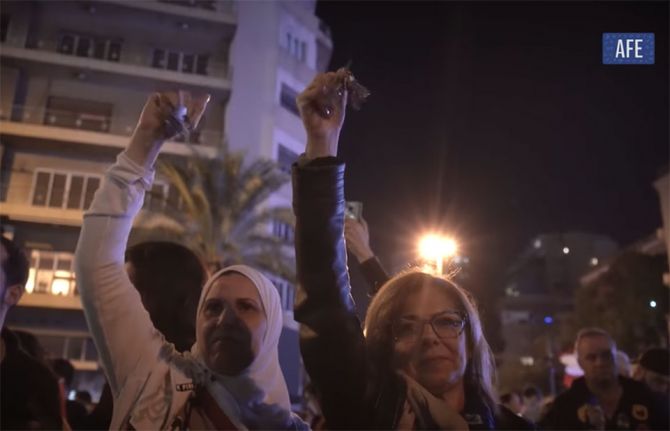

Feature Story
“We carry on”
28 February 2020
28 February 2020 28 February 2020“For five years I have been subjected to harassment and threats—rape threats, murder threats, vilification, character assassination, phone calls to my family, to my mom,” said Lebanese television anchor Dima Sadek.
To raise public awareness about sexual harassment and bullying in Lebanon, particularly against female journalists during the recent protests, the Arab Foundation for Freedoms and Equality—UNAIDS’ regional partner on rights and health—has produced a video that sheds light on this human rights abuse committed against many women in the country.
Made in partnership with the HIVOS Women Empowered for Leadership (WE4L) programme, with funding from the Dutch Ministry of Foreign Affairs, the video highlights cases of harassment and assault—reporters whose bodily autonomy has been violated, whose personal telephone numbers have been leaked and who subsequently received rape threats and pornography and who have been verbally and physically attacked while live on television.
“You don’t expect that someone could be this hurtful or that they could say such things. You don’t know them and they don’t know you, but because you differ on politics, they feel they are allowed to talk to you in this way,” said Layal Saad, a reporter.
Since similar attacks, including online bullying and harassment both online and offline, have also been reported by female protesters, the video also seeks to raise awareness about the everyday sexual harassment, bullying and violence that women in general are subjected to, emphasizing the need for policies that allow women to become leaders.
Diana Moukalled, a journalist, explained that legal protection against sexual harassment is needed, since at present there are no laws that criminalize sexual harassment in Lebanon. “Lebanese women are among the most politically marginalized in the world, not just in the region. We see women present on many levels, yet there is a sharp discrepancy between the role of Lebanese women and their representation,” she said.
The video’s title is We Carry On, echoing the sentiment of the many women who watched and reacted to it—a feeling of resilience in the face of adversity and a determination to achieve the social justice demanded by women in Lebanon.



